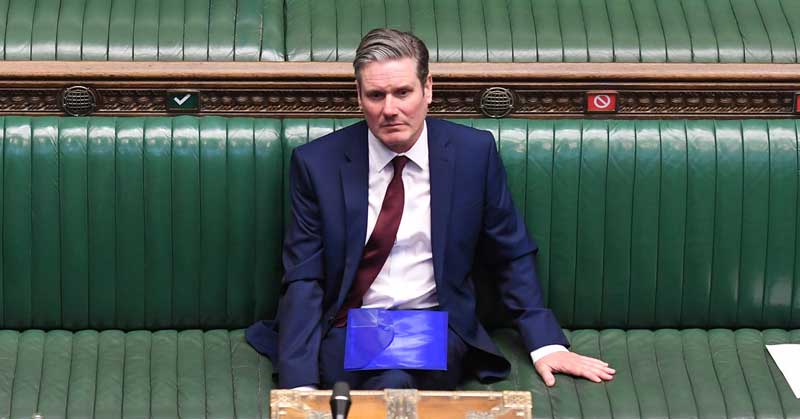

By Rebecca Anderson
BORIS JOHNSON’S government suffered two significant by-election defeats on 23 June, adding fuel to demands by Tory MPs for his resignation. In Devon the Lib Dems won Tiverton and Honiton outright on a huge swing from the Tories, while less impressively Labour won the West Yorkshire seat of Wakefield.
Westminster commentators pointed out that this was bad news for the Tories who have lost four out of the last five by-elections. Current polling suggests that a general election held today would result in a hung parliament with Labour as the largest party.
This must be worrying Labour strategists. At this point in the electoral cycle the party should be riding high in the polls. Yet, as elections analyst John Curtice put it, ‘there still isn’t that much enthusiasm for Labour’.
Shallow victory
Despite the front-page pictures of a grinning Starmer in Wakefield, few see this as a great victory. His business-friendly, anti-union, policy-light Labour Party remains only seven points ahead of the scandal-hit Tories. The government shouldn’t just be on the ropes – they should be on the canvas.
Due to a low turnout, Labour won with 5,000 fewer votes than it got in 2019. Starmer’s imposition of a moderate candidate on the local party certainly did not help. Like Neil Kinnock before him, Starmer’s attacks on the left and ditching of socialist policies do not make him a popular figure.
The result looks even worse considering the Lib Dems barely campaigned in Wakefield, with Labour reciprocating in Tiverton. Both parties effectively stood aside in an unofficial pact but the Lib Dems came out clear winners: 16% of Tiverton Labour supporters tactically voted Liberal, while Wakefield Labour only got a 2% boost from the tiny Lib Dem vote. This should serve as a warning for those thinking of extending the pact into the general election.
With the cost of living spiralling and the economy slowing down, the TUC reports a 700% increase in online enquires about joining a trade union. One would expect Labour, the traditional party of the unions, to be experiencing a similar boost.
However, Starmer has turned his back on workers struggling to make ends meet. His strategy is to be seen as a ‘safe pair of hands’ for Britain’s bosses when the Tories eventually lose office.
To strike or not to strike
The cost of living crisis is putting Starmer’s strategy under pressure. Not only are the Tories pinching Labour’s moderate policies, the workers (damn them!) are fighting back with pay strikes. Starmer’s gut instinct was to order Labour’s front bench not to join RMT picket lines. It was only the huge surge of public support for the rail strikes that prevented Starmer from sacking members of his shadow cabinet who showed their solidarity.
The Labour leadership’s dilemma soon descended into farce with shadow foreign secretary David Lammy’s ludicrous intervention. Asked on TV whether he supported GMB strikers at British Airways, he replied, ‘No, I don’t. No, I don’t. It is a no. It’s a categorical no… Because I’m serious about the business of being in government and the business of being in government is that you support negotiation.’
After Sharon Graham called this a ‘new low’ for Labour, Lammy beat a hasty retreat, claiming that he did not know what the dispute was about: probably true, but a damning admission in itself.
The problem for Starmer is that, while he is doing the bidding of Labour’s right wing, he is getting conflicting advice from them.
On the one hand Tony Blair has commended his refusal to support strikers, arguing, ‘if Labour wants to form a government, it’s going to be very clear the country at the moment can’t afford a whole wave of public sector strikes’.
On the other hand influential figures on Labour’s right, including centre-right union leaders, warn against sitting on the fence. Influential MP Jon Cruddas told The Guardian, ‘The rail strikes are arguably the canary down the coalmine. You cannot dodge this. Labour has to be supportive of those seeking to defend their living standards.’ These divisions are to be welcomed but the left should have no illusions in the likes of Cruddas, who only wants to appease workers so he can coral them into a patriotic alliance behind Britain’s bosses. Instead the Labour left should demand the leadership support all strikes for real wage rises and organise solidarity on the picket line, in their own workplaces and on the High Streets.